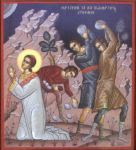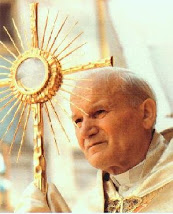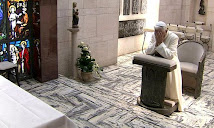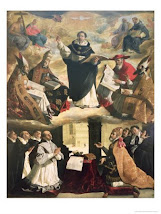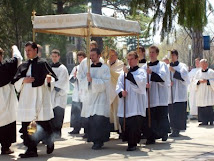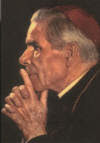Nouwen expresses the necessity of solitude in order to increase ones depth and understanding of their spirituality, Aschenbrenner completes this undertaking in a realistic aspect for all variations of ministry. Nouwen preferred the utilization of a monk to “paint the picture” of necessity of solitude, which for the most part, excluded those who serve in different capacities of the church or various organizations.
Solitude as time spent alone with God and with oneself will always, sooner or later, test our sense of self and experiment with the central depth of our person. Solitude plays an essential role in moving beyond the levels of busy activity and superficial spontaneity. Time alone, if more than just a few minutes and if perdured in, can reveal inner chambers of the heart concealed within the frustration of unproductive inactivity and the spontaneity of thought and feeling in our consciousness. In these quiet times alone, if regularly planned and not just fitted to our moods and feelings, we can break through to a new level of experience and relationship with ourselves and with God (Aschenbrenner, S.J., 1995, 244). Various methods of self-reflection can also assist this movement to the center. Consciousness examine, journal writing, spiritual direction are just some examples of interiority, of a regular reflection that helps us to search for—and to receive—something underneath the busy flow of activity and superficial spontaneous fluctuation in our consciousness. Specific life experiences often invite that second look of reflection and thus have the potential for calling us deeper into ourselves (Aschenbrenner, S.J., 1995, 245).
It is easy to lose belief in God’s love simply because I don’t feel it anymore. For one living on the skin of the soul, the felt experience in itself unreflectively becomes ultimate legitimation of the presence or absence of one’s faith. But the reality is otherwise: we must learn to recognize the loving hand of God, at times dulling our sensuous, felt experience of love, precisely as an invitation to believe in a love far beyond what we feel (Aschenbrenner, S.J., 1995, 245).
This process of personal development and ministerial maturing into the core of ourselves obviously happens over years. And, we need help with such formation of self, today especially, because of some of the secular forces of our world mentioned earlier. The importance and difficulty of this kind of mature faith development poses some serious questions for programs of religious formation that prepare for permanent vocational choice and ministry (Aschenfrenner, S.J., 1995, 246).
Those who are in some type of ministry need to understand and develop within themselves this core, this closeness with God, their identity within their spirituality. Often, we forget that we “serve” the people of God in our various capacities as ministers; pastoral counselors; ordained or within the laity. It (our service) becomes “mundane” or “unfulfilling” for some reason (lack of understanding, spirituality). We need to work prayerfully for our ministry, and prayerfully for God.
Reference:
Aschenbrenner, G. S.J. (1995). A Hidden Self Grown Strong. In R. J. Wicks (Ed.), Handbook of Spirituality for Ministers (pp. 228-249). New York: Paulist Press.
Christian Education
"Since all Christians have become by rebirth of water and the Holy Spirit a new creature(8) so that they should be called and should be children of God, they have a right to a Christian education. A Christian education does not merely strive for the maturing of a human person as just now described, but has as its principal purpose this goal: that the baptized, while they are gradually introduced the knowledge of the mystery of salvation, become ever more aware of the gift of Faith they have received, and that they learn in addition how to worship God the Father in spirit and truth (cf. John 4:23) especially in liturgical action, and be conformed in their personal lives according to the new man created in justice and holiness of truth (Eph. 4:22-24); also that they develop into perfect manhood, to the mature measure of the fullness of Christ (cf. Eph. 4:13) and strive for the growth of the Mystical Body; moreover, that aware of their calling, they learn not only how to bear witness to the hope that is in them (cf. Peter 3:15) but also how to help in the Christian formation of the world that takes place when natural powers viewed in the full consideration of man redeemed by Christ contribute to the good of the whole society.(9) Wherefore this sacred synod recalls to pastors of souls their most serious obligation to see to it that all the faithful, but especially the youth who are the hope of the Church, enjoy this Christian education."
Gravissimum Educationis
Gravissimum Educationis
Showing posts with label Spirituality. Show all posts
Showing posts with label Spirituality. Show all posts
Saturday, March 21, 2009
Discernment?
Discernment. 1 : the quality of being able to grasp and comprehend what is obscure : skill in discerning. This definition from Webster's, while accurate, only hints at the meaning those in religious life have invested in the term (Vocations Placement [VP]).
Obscure indeed: how can one be sure that God is calling them to a life of professional commitment to the Church? Many have felt nearly overwhelmed with the beauty of a liturgical service; with a passionate sermon or religious work of prose or poetry; with the seemingly inexhaustible energy and love of a Mother Teresa of Calcutta. It is perfectly natural that our wonder at such beauty inspires us to imitate those who practice it. We are positively called to do so, each of us, and we must strive to meet that calling with all our energy, freely giving of ourselves and our talents in the process. Doing so, however, does not require one to commit to the life of a priest, nun, brother or deacon. It is fully possible to follow God’s will within any context life might bring.
Discernment, in “vocational” terms, is a process undertaken by those who are striving to follow God’s will in every daily activity, who have done so for quite a while, but are still feeling a call to investigate whether God is asking them to fulfill their commitment to Him as a priest, nun, brother or deacon. Such people know that this commitment will lead to many sacrifices, including a vow of celibacy, a communal lifestyle, long hours, and some trying times with people in need. Nevertheless, the thought routinely (if quietly) keeps recurring to them: “is this what God is asking of me?” (VP).
For more information on discernment to religious life, please visit my freind, Brad Watkins blog at romancatholicvocations.blogspot.com (A link is also located on the right side of this blog)
Obscure indeed: how can one be sure that God is calling them to a life of professional commitment to the Church? Many have felt nearly overwhelmed with the beauty of a liturgical service; with a passionate sermon or religious work of prose or poetry; with the seemingly inexhaustible energy and love of a Mother Teresa of Calcutta. It is perfectly natural that our wonder at such beauty inspires us to imitate those who practice it. We are positively called to do so, each of us, and we must strive to meet that calling with all our energy, freely giving of ourselves and our talents in the process. Doing so, however, does not require one to commit to the life of a priest, nun, brother or deacon. It is fully possible to follow God’s will within any context life might bring.
Discernment, in “vocational” terms, is a process undertaken by those who are striving to follow God’s will in every daily activity, who have done so for quite a while, but are still feeling a call to investigate whether God is asking them to fulfill their commitment to Him as a priest, nun, brother or deacon. Such people know that this commitment will lead to many sacrifices, including a vow of celibacy, a communal lifestyle, long hours, and some trying times with people in need. Nevertheless, the thought routinely (if quietly) keeps recurring to them: “is this what God is asking of me?” (VP).
For more information on discernment to religious life, please visit my freind, Brad Watkins blog at romancatholicvocations.blogspot.com (A link is also located on the right side of this blog)
Labels:
Spirituality
Handling obstacles to the Spirit (Briefly looked upon)
Fr. Hauser implies four guidelines that are central to developing the skill of discernment in daily life/handling obstacles to the Spirit. All are equally quantifiable however, the fourth, trust in the Spirit: grace in us is stronger than sin in us—we have been redeemed (Hauser, S.J., 1995, 221) expresses more within the rational towards discernment.
We sometimes (more often than not) tend to forget that God does love us and wants us to succeed in everything that we do. In turn, God has placed before us different paths to follow, some are clear others have obstacles and it is more often than not, during the path with the obstacles we tend to forget that “grace in us is stronger than sin in us.” Discernment is not a clear and concise path, it is a path full of obstacles and wayward directions to choose from, so this particular point is of most interest to me and my personal discernment.
The transformation of our inner selves is a lifetime journey and we must be patient. The Lord asks only for fidelity to the journey; we will be transformed in God’s good time. God willed the human condition, which includes human brokenness. But God wills brokenness only because it is a unique occasion for experiencing the power redemption (Hauser, S.J., 1995, 221). Many of our weaknesses never go away, be they physical liabilities or moral temptations. They are handled best when we name them—approaching them even with a sense of humor—and refuse to respond to them, realizing that without them we would be deprived of occasions for experiencing the grace of our redemption (Hauser, S.J., 1995, 222).
Reference:
Hauser, R. J.S.J. (1995). Each Mortal Thing Does One Thing and the Same--Selves: An Approach to Christian Discernment. In R. J. Wicks (Ed.), Handbook of Spirituality for Ministers (pp. 207-228). New York: Paulist Press.
We sometimes (more often than not) tend to forget that God does love us and wants us to succeed in everything that we do. In turn, God has placed before us different paths to follow, some are clear others have obstacles and it is more often than not, during the path with the obstacles we tend to forget that “grace in us is stronger than sin in us.” Discernment is not a clear and concise path, it is a path full of obstacles and wayward directions to choose from, so this particular point is of most interest to me and my personal discernment.
The transformation of our inner selves is a lifetime journey and we must be patient. The Lord asks only for fidelity to the journey; we will be transformed in God’s good time. God willed the human condition, which includes human brokenness. But God wills brokenness only because it is a unique occasion for experiencing the power redemption (Hauser, S.J., 1995, 221). Many of our weaknesses never go away, be they physical liabilities or moral temptations. They are handled best when we name them—approaching them even with a sense of humor—and refuse to respond to them, realizing that without them we would be deprived of occasions for experiencing the grace of our redemption (Hauser, S.J., 1995, 222).
Reference:
Hauser, R. J.S.J. (1995). Each Mortal Thing Does One Thing and the Same--Selves: An Approach to Christian Discernment. In R. J. Wicks (Ed.), Handbook of Spirituality for Ministers (pp. 207-228). New York: Paulist Press.
Labels:
Spirituality
Subscribe to:
Posts (Atom)






